 W
WPetre Andrei was a Romanian sociologist, philosopher and politician.
 W
WConstantin Antoniade (1880–1954) was a Romanian jurist, writer, historian, philosopher and diplomat of ethnic Greek heritage.
 W
WNicolae Bagdasar was a Romanian philosopher. Born to a peasant family north of Bârlad, he fought in World War I before attending the University of Bucharest and going on to earn a doctorate in Germany. He entered university teaching at Bucharest in 1928, but did not become a full professor until 1942, when he began teaching the history of philosophy and epistemology at Iași. Rising to Romanian Academy member the following year, he lost this distinction in 1948, under the nascent communist regime, and was removed from teaching in 1949. He spent the remainder of his career in a lower profile, undertaking research in various fields. A well-read scholar, Bagdasar authored the first history of Romanian philosophy, among several noted texts. Both in the interwar period and during World War II, he was involved in running publishing houses, with the latter stint incurring disfavor from the communist authorities.
 W
WSimion Bărnuțiu was a Transylvanian, later Romanian historian, academic, philosopher, jurist, and liberal politician. A leader of the 1848 revolutionary movement of Transylvanian Romanians, he represented its Eastern Rite Catholic wing. Bărnuțiu lived for a large part of his life in Moldavia, and was for long a professor of philosophy at Academia Mihăileană and at the University of Iași.
 W
WȘtefan Bârsănescu was a Romanian academician and educator who gained renown as an essayist and philosopher.
 W
WSamson L. Bodnărescu was a Romanian poet.
 W
WTraian Brăileanu or Brăilean was an Austro-Hungarian-born Romanian sociologist and politician. A native of the Bukovina region, he attended Czernowitz University, where he studied philosophy and classical languages, subsequently earning a doctorate. Ending up as a translator in Vienna, he fought for Austria during World War I. At the conclusion of hostilities, returned to the renamed Cernăuți, now part of Greater Romania. There, he soon became a professor of sociology, leading a "Cernăuți School" of academics during the interwar period.
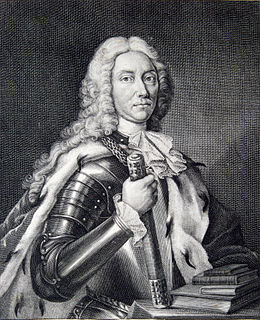 W
WDimitrie or Demetrius Cantemir, also known by other spellings, was a Moldavian soldier, statesman, and man of letters. He was twice voivode of Moldavia. During his second term, he allied his state with Russia in their war against Moldavia's Ottoman overlords; Russia's defeat forced Cantemir's family into exile and the replacement of the native voivodes by the Greek phanariots. Cantemir was also a prolific writer, variously a philosopher, historian, composer, musicologist, linguist, ethnographer, and geographer. His son Antioch, Russia's ambassador to Great Britain and France and a friend of Montesquieu and Voltaire, would go on to be known as "the father of Russian poetry".
 W
WPanait Cerna was a Romanian poet, philosopher, literary critic and translator. A native speaker of Bulgarian, Cerna nonetheless wrote in Romanian, and developed a traditionalist style which was connected with classicism and neoclassicism. Praised by the conservative literary society Junimea, he was promoted by its leader Titu Maiorescu, as well as by Maiorescu's disciples Mihail Dragomirescu and Simion Mehedinţi. Cerna became the group's main representative during its decline, contributing to both major Junimist magazines, Convorbiri Literare and Convorbiri Critice. He also contributed pieces to the traditionalist magazine Sămănătorul, and was briefly affiliated with other literary journals.
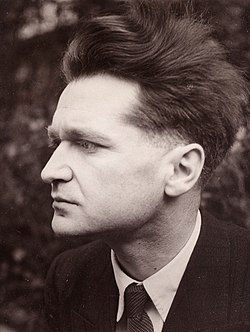 W
WEmil Cioran was a Romanian-born philosopher and essayist, who published works in both Romanian and French. His work has been noted for its pervasive philosophical pessimism, and frequently engages with issues of suffering, decay, and nihilism. Among his best-known works are On the Heights of Despair (1934) and The Trouble with Being Born (1973). Cioran's first French book, A Short History of Decay, was awarded the prestigious Rivarol Prize in 1950. The Latin Quarter of Paris was his permanent residence and he lived much of his life in seclusion with his partner Simone Boué.
 W
WAlexandru Claudian was a Romanian sociologist, political figure, and poet. A student and practitioner of Marxism, he worked as a schoolteacher, entry-level academic, field researcher, and journalist, before finally earning a professorship at Iași University. An anti-fascist, Claudian enlisted with the Romanian Social Democratic Party during the interwar, moving closer to the anti-communist center by the late 1940s, and became that faction's main theoretician. His condemnation of Marxism and totalitarianism made him an enemy of the communist regime, which imprisoned him for several years and kept him under surveillance until the time of his death.
 W
WVasile Conta was a Romanian philosopher, poet, and politician.
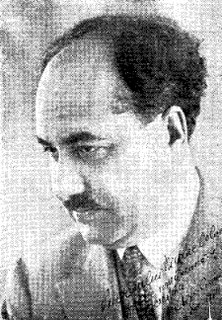 W
WNichifor Crainic was a Romanian writer, editor, philosopher, poet and theologian famed for his traditionalist activities. Crainic was also a professor of theology at the Bucharest Theological Seminary and the Chișinău Faculty of Theology. He was an important racist ideologue, and a far-right politician. He was one of the main Romanian fascist and antisemite ideologues.
 W
WDimitrie Cuclin was a Romanian classical music composer, musicologist, philosopher, translator, and writer.
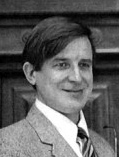 W
WIoan Petru Culianu or Couliano was a Romanian historian of religion, culture, and ideas, a philosopher and political essayist, and a short story writer. He served as professor of the history of religions at the University of Chicago from 1988 to his death, and had previously taught the history of Romanian culture at the University of Groningen.
 W
WNeagu Bunea Djuvara was a Romanian historian, essayist, philosopher, journalist, novelist, and diplomat.
 W
WMircea Eliade was a Romanian historian of religion, fiction writer, philosopher, and professor at the University of Chicago. He was a leading interpreter of religious experience, who established paradigms in religious studies that persist to this day. His theory that hierophanies form the basis of religion, splitting the human experience of reality into sacred and profane space and time, has proved influential. One of his most instrumental contributions to religious studies was his theory of eternal return, which holds that myths and rituals do not simply commemorate hierophanies, but, at least to the minds of the religious, actually participate in them.
 W
WBonifaciu Florescu was a Romanian polygraph, the illegitimate son of writer-revolutionary Nicolae Bălcescu. Born secretly outside his parents' native Wallachia, at Pest, he was taken by his aristocratic mother in France, growing up as an erudite Francophone and Francophile. Florescu graduated from the Lycée Louis-le-Grand and the University of Rennes, returning home at age 25 to become a successful lecturer, polemicist, and historian of culture. Influenced by his father's politics, he was for a while a prominent figure on the far-left of Romanian liberalism and nationalism, which pitted him against the conservative society Junimea, and against his own conservative cousin, Prime Minister Ion Emanuel Florescu. The conflict led to his losing a professorship at Iași University and being sidelined when applying for chairs at the University of Bucharest. His critique of Junimist literature, structured around a classical defense of prosody, inspired a libel by Mihai Eminescu—famously depicting Florescu as a "homunculus".
 W
WBenjamin Fondane or Benjamin Fundoianu was a Romanian and French poet, critic and existentialist philosopher, also noted for his work in film and theater. Known from his Romanian youth as a Symbolist poet and columnist, he alternated Neoromantic and Expressionist themes with echoes from Tudor Arghezi, and dedicated several poetic cycles to the rural life of his native Moldavia. Fondane, who was of Jewish Romanian extraction and a nephew of Jewish intellectuals Elias and Moses Schwartzfeld, participated in both minority secular Jewish culture and mainstream Romanian culture. During and after World War I, he was active as a cultural critic, avant-garde promoter and, with his brother-in-law Armand Pascal, manager of the theatrical troupe Insula.
 W
WGala Galaction was a Romanian Orthodox clergyman and theologian, writer, journalist, left-wing activist, as well as a political figure of the People's Republic of Romania. Contrary to the spirit of the time, he was a promoter of tolerance towards the Jewish minority.
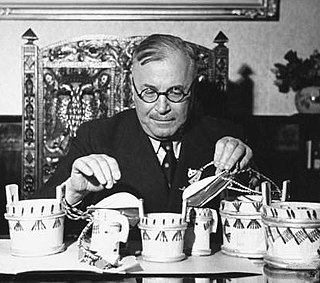 W
WDimitrie Gusti was a Romanian sociologist, ethnologist, historian, and voluntarist philosopher; a professor at the University of Iaşi and the University of Bucharest, he served as Romania's Minister of Education in 1932–1933. Gusti was elected a member of the Romanian Academy in 1919, and was its president between 1944 and 1946. He was the main contributor to the creation of a new Romanian school of sociology.
 W
WTraian Herseni was a Romanian social scientist, journalist, and political figure. First noted as a favorite disciple of Dimitrie Gusti, he helped establish the Romanian school of rural sociology in the 1920s and early '30s, and took part in interdisciplinary study groups and field trips. A prolific essayist and researcher, he studied isolated human groups across the country, trying to define relations between sociology, ethnography, and cultural anthropology, with an underlying interest in sociological epistemology. He was particularly interested in the peasant cultures and pastoral society of the Făgăraș Mountains. Competing with Anton Golopenția for the role of Gusti's leading disciple, Herseni emerged as the winner in 1937; from 1932, he also held a teaching position at the University of Bucharest.
 W
WMoshe Idel is an Israeli historian and philosopher of Jewish mysticism. He is Emeritus Max Cooper Professor in Jewish Thought at the Hebrew University, Jerusalem, and a Senior Researcher at the Shalom Hartman Institute.
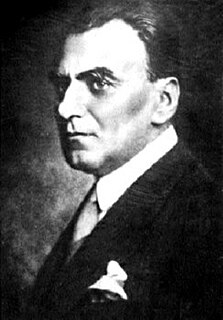 W
WNae Ionescu was a Romanian philosopher, logician, mathematician, professor, and journalist. Near the end of his career, he became known for his antisemitism and devotion to far right politics, in the years leading up to World War II.
 W
WNicolae Iorga was a Romanian historian, politician, literary critic, memoirist, poet and playwright. Co-founder of the Democratic Nationalist Party (PND), he served as a member of Parliament, President of the Deputies' Assembly and Senate, cabinet minister and briefly (1931–32) as Prime Minister. A child prodigy, polymath and polyglot, Iorga produced an unusually large body of scholarly works, establishing his international reputation as a medievalist, Byzantinist, Latinist, Slavist, art historian and philosopher of history. Holding teaching positions at the University of Bucharest, the University of Paris and several other academic institutions, Iorga was founder of the International Congress of Byzantine Studies and the Institute of South-East European Studies (ISSEE). His activity also included the transformation of Vălenii de Munte town into a cultural and academic center.
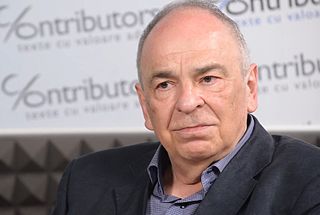 W
WGabriel Liiceanu is a Romanian philosopher.
 W
WStéphane Lupasco was a Romanian philosopher who developed non-Aristotelian logic.
 W
WPetru Maior was a Romanian writer who is considered one of the most influential personalities of the Age of Enlightenment in Transylvania. Maior was a member of the Greek-Catholic clergy, a historian, philosopher, and linguist.
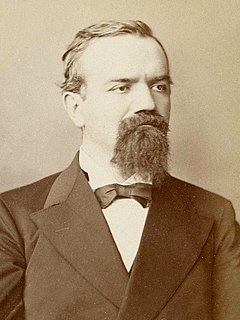 W
WTitu Liviu Maiorescu was a Romanian literary critic and politician, founder of the Junimea Society. As a literary critic, he was instrumental in the development of Romanian culture in the second half of the 19th century.
 W
WMihaela Miroiu is a Romanian political theorist and feminist philosopher and the most prominent activist for women's rights and a very well known activist for Roma rights, more generally, for minorities rights. She is currently Professor of Political science at the Faculty of Political Science, National University of Political Studies and Public Administration, Bucharest.
 W
WEugen Munteanu is a Romanian linguist. He specializes in Biblical philology, historical lexicology and the philosophy of language.
 W
WConstantin Noica was a Romanian philosopher, essayist and poet. His preoccupations were throughout all philosophy, from epistemology, philosophy of culture, axiology and philosophic anthropology to ontology and logics, from the history of philosophy to systematic philosophy, from ancient to contemporary philosophy, from translating and interpretation to criticism and creation. In 2006 he was included to the list of the 100 Greatest Romanians of all time by a nationwide poll.
 W
WHoria-Roman Patapievici is a Romanian physicist and essayist who served as the head of the Romanian Cultural Institute from 2005 until August 2012. Between 2000 and 2005, he was a member of the National Council for the Study of the Securitate Archives, supporting more openness regarding the files of the Securitate.
 W
WLucrețiu Pătrășcanu was a Romanian communist politician and leading member of the Communist Party of Romania (PCR), also noted for his activities as a lawyer, sociologist and economist. For a while, he was a professor at Bucharest University. Pătrășcanu rose to a government position before the end of World War II and, after having disagreed with Stalinist tenets on several occasions, eventually came into conflict with the Romanian Communist government of Gheorghe Gheorghiu-Dej. He became a political prisoner and was ultimately executed. Fourteen years after Pătrășcanu's death, Romania's new communist leader, Nicolae Ceaușescu, endorsed his rehabilitation as part of a change in policy.
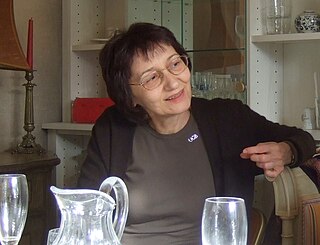 W
WMarta Petreu is the pen name of Rodica Marta Vartic, née Rodica Crisan, a Romanian philosopher, literary critic, essayist and poet. A professor of Philosophy at the Babeş-Bolyai University in Cluj-Napoca, she has published eight books of essays and seven of poetry, and is the editor of the monthly magazine Apostrof. Petreu is also noted as a historian of fascism, which she notably dealt with in her book about the controversial stances of philosopher Emil Cioran.
 W
WAndrei Gabriel Pleșu is a Romanian philosopher, essayist, journalist, literary and art critic. He has been intermittently involved in politics assuming the roles of Minister of Culture (1989–91), Minister of Foreign Affairs (1997–99) and presidential counsellor for external affairs (2004–05).
 W
WVasile V. Pogor was a Moldavian, later Romanian poet, philosopher, translator and liberal conservative politician, one of the founders of Junimea literary society. Raised in the aristocratic circle of Iași, and educated in the French Empire, he had a career in law. He was a civil servant during the United Principalities regime, held seats and commissions in the Assembly of Deputies, and, after the proclamation of the Kingdom of Romania, was Mayor of Iași City. Although he had a major role in creating the Conservative Party, by fusing together the various "White" political clubs and Masonic Lodges, Pogor was more loyal to the Junimist inner faction, and stood by it when it split with the other Conservatives.
 W
WConstantin Rădulescu-Motru was a Romanian philosopher, psychologist, sociologist, logician, academic, dramatist, as well as left- nationalist politician.. A member of the Romanian Academy after 1923, he was its vice president in 1935–1938, 1941–1944, and its president between 1938 and 1941.
 W
WIon Heliade Rădulescu or Ion Heliade was a Wallachian, later Romanian academic, Romantic and Classicist poet, essayist, memoirist, short story writer, newspaper editor and politician. A prolific translator of foreign literature into Romanian, he was also the author of books on linguistics and history. For much of his life, Heliade Rădulescu was a teacher at Saint Sava College in Bucharest, which he helped reopen. He was a founding member and first president of the Romanian Academy.
 W
WMihai Dumitru Ralea was a Romanian social scientist, cultural journalist, and political figure. He debuted as an affiliate of Poporanism, the left-wing agrarian movement, which he infused with influences from corporatism and Marxism. A distinguished product of French academia, Ralea rejected traditionalism and welcomed cultural modernization, outlining the program for a secular and democratic "peasant state". His ideology blended into his scholarly work, with noted contributions to political sociology, the sociology of culture, and social and national psychology. He was a professor at the University of Iași and, from 1938, the University of Bucharest.
Eugen D. Relgis (backward reading of Eisig D. Sigler; first name also Eugenio, Eugène or Eugene, last name also Siegler or Siegler Watchel; was a Romanian writer, pacifist philosopher and anarchist militant, known as a theorist of humanitarianism. His internationalist dogma, with distinct echoes from Judaism and Jewish ethics, was first shaped during World War I, when Relgis was a conscientious objector. Infused with anarcho-pacifism and socialism, it provided Relgis with an international profile, and earned him the support of pacifists such as Romain Rolland, Stefan Zweig and Albert Einstein. Another, more controversial, aspect of Relgis' philosophy was his support for eugenics, which centered on the compulsory sterilization of "degenerates". The latter proposal was voiced by several of Relgis' essays and sociological tracts.
 W
WDumitru D. Roṣca was a Romanian philosopher, professor and member of the Romanian Academy.
 W
WHenric Sanielevici was a Romanian journalist and literary critic, also remembered for his work in anthropology, ethnography, sociology and zoology. Initially a militant socialist from the political-philosophical circle of Constantin Dobrogeanu-Gherea, he incorporated other influences and, in 1905, created his own literary review, Curentul Nou. Sanielevici and his friend Garabet Ibrăileanu were among the founders of "Poporanism", a peasant-oriented and left-wing movement. However, Sanielevici soon detached himself from both Marxism and agrarianism, criticizing Romanian traditionalist literature, and prophesying a Neoclassicism for the working men. His heated polemic with the rival school of Sămănătorul journal isolated him from the other Poporanists, whom he eventually denounced as "reactionaries". More controversy surrounded his ambiguous attitudes during World War I.
 W
WMaurice Solovine was a Romanian philosopher and mathematician. He is best known for his association with Nobel laureate, Albert Einstein.
 W
WMihai Șora is a Romanian philosopher and essayist.
 W
WConstantin G. Stere or Constantin Sterea was a Romanian writer, jurist, politician, ideologue of the Poporanist trend, and, in March 1906, co-founder of the literary magazine Viața Românească. One of the central figures of the Bessarabian intelligentsia at the time, Stere was a key actor during the Union of Bessarabia with Romania in 1918, and is associated with its legacy.
 W
WChristian Tămaş is a Romanian writer, translator, essayist, arts and humanities researcher.
 W
WVazgen I also Vazken I of Bucharest,, born Levon Garabed Baljian was the Catholicos of All Armenians between 1955 and 1994, for a total of 39 years, the 4th longest reign in the history of the Armenian Apostolic Church. The following three served for 39 years as Catholicos of All Armenians or Catholicos of the Great House of Cilicia:Peter I (1019–1058) — Պետրոս Ա Գետադարձ, Gregory II the Martyrophile (1066–1105) — Գրիգոր Բ. Վկայասէր and David IV (1590–1629), d. 1633 — Դավիթ Դ Վաղարշապատցի.
 W
WTudor Vianu was a Romanian literary critic, art critic, poet, philosopher, academic, and translator. Known for his left-wing and anti-fascist convictions, he had a major role on the reception and development of Modernism in Romanian literature and art. He was married to Elena Vianu, herself a literary critic, and was the father of Ion Vianu, a well-known psychiatrist, writer and essayist.
 W
WAlice Voinescu (1885–1961) was a Romanian writer, essayist, university professor, theatre critic and translator. She was the first Romanian woman to become a Doctor of Philosophy, which she did at the Sorbonne in 1913 in Paris. In 1922, she became a professor of theatrical history at what would become the Royal Academy of Music and Dramatic Arts in Bucharest, where she taught for over two decades. In 1948, she was removed from her department and spent a year and seven months in prisons in Jilava and Ghencea. After her detention, she was kept under house arrest in the village of Costești near Târgu Frumos until 1954. Posthumously, her diary covering the interwar and communist period of Romania's history was discovered and published in 1997.
 W
WPaul Zarifopol was a Romanian literary and social critic, essayist, and literary historian. The scion of an aristocratic family, formally trained in both philology and the sociology of literature, he emerged in the 1910s as a rebel, highly distinctive, voice among the Romanian press and book reviewers. He was a confidant and publisher of the Romanian writer Ion Luca Caragiale, building his theories on Caragiale's already trenchant appraisals of Romanian society and culture. Zarifopol defended art for art's sake even against the Marxism of his father-in-law, Constantin Dobrogeanu-Gherea, and the Poporanism of his friend, Garabet Ibrăileanu. He was also a noted censurer of neoclassical trends, of philistinism, and of inauthentic customs, advocating renewal, but not revolution. A skeptic reviewer of modernist literature, he reemerged during the interwar period as its dedicated promoter, but his preference for literary entertainment over substance and many of his literary bets were shortly dismissed by other experts of the day.